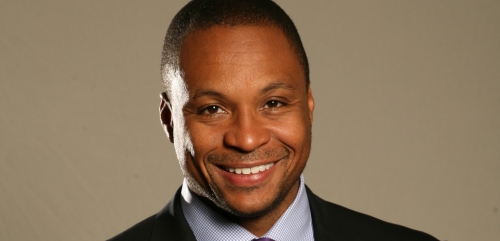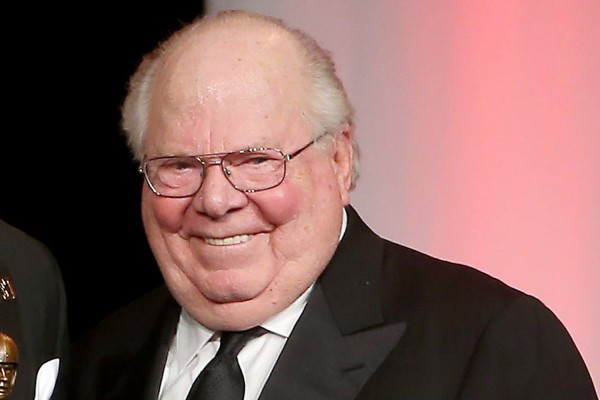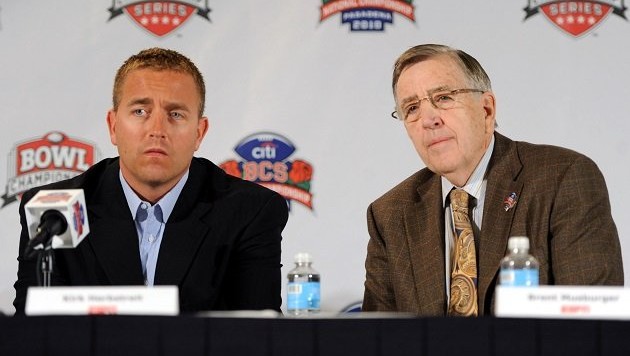Can you feel college football arriving at your doorstep? It’s just about here.
With opening night (not Georgia State’s Aug. 27 game against an FCS team) 10 days away on Aug. 28, it’s time to prepare you for the season on numerous levels. The broadcasters you see and hear on Saturdays form one small but important part of the larger mosaic of the college football experience. Today and tomorrow, the editors at The Student Section will take you through a two-part media roundtable. Today, we discuss personalities and on-air talent. In tomorrow’s extended roundtable, we’ll focus on programming, network decisions, and the way the sport is covered on television as a whole.
*
EDITORS’ NOTE: Today, the TSS editors are immensely pleased to welcome a special guest to our roundtable. Matt Yoder, publisher of Bloguin partner site Awful Announcing, lends his insight and perspective to our forum. There’s no better place on the web than Awful Announcing for smart criticism (and praise) of college football broadcasters… and all other issues under the sports broadcasting sun.
*
Now, you are looking liiiiiiiiiiiive at the TSS Editors’ Roundtable:
Question No. 1: You have only one college football game left to watch in your life. It must be live, not a taped game or a YouTube watch. Who is your play-by-play man among active broadcasters? Who is your color analyst?
Matt Yoder:
On Twitter @myoder84
So you’re saying I can’t convince Keith Jackson for one last comeback game at age 85? If we’re sticking with active broadcasters, my choice is Brent Musburger. (Yes, to the surprise of many, he’s still active.) He’s still the best big-game caller in the sport and I firmly believe he in no way, shape, or form deserved his demotion to SEC Network. ESPN can dress it up all they want, but it’s a demotion, plain and simple. Musburger was and is still at the top of his game and is one of the very few announcers still working that can bring the big-game atmosphere solely by his presence. His call of the last quarter of Florida State-Auburn last year was as good as it gets. Brent just beats out Verne Lundquist, Gus Johnson, and Joe Tessitore for this slot.
The analyst position is a bit of a tougher call, but if it ain’t broke, don’t fix it. Kirk Herbstreit made a seamless transition from the College GameDay studio to the broadcast booth and has proven to be worthy of the top game analyst position in the sport. It’s tempting to pick someone a bit further under the radar like Chris Spielman, Todd Blackledge, or Charles Davis, but Herbie is still my pick.
Bart Doan:
On Twitter @TheCoachBart
This is tough for me personally, because I normally pay something less than 0 attention to who is calling a game nor do I sit on one game on the same channel for the duration of the game. Nor do I always even have the volume up. Matt, the Yoder version, pretty much stole my answer with the Keith Jackson thing.
Jackson was, is, and ever will be the only guy I pop on the television and say, “Yes, this guy is on the call.” Aside from him and Gus Johnson calling basketball games, I honestly couldn’t care less. I’ll just say Johnson for active guys because I literally wish Gus could follow me around all day and narrate my life.
My trips to the grocery store would even seem exciting with Gus’ opinion in the background. “Oh my, that’s one heck of a head of lettuce!” Same thing for color analysts. Really don’t care or pay attention to who’s doing it, but for the sake of an answer I guess I’ll just go with Brian Griese.
Terry Johnson:
On Twitter @SectionTPJ
Here’s my dream team for this hypothetical example.
Naturally, for the play-by-play, I would choose Joe Tessitore. While it’s probably just an amazing coincidence, the fact of the matter is that exciting things happen when Joey T is on the mike. Whether it’s a huge upset, a coach icing his own kicker, or a Heisman Trophy winning moment, Tessitore always seems to be there. Call it the Tessitore Effect.
Gus Johnson would be my color analyst. Like Tessitore, interesting things always seem to unfold whenever Johnson calls a game. In addition, he puts things very matter of factly, saying in the 2007 Fiesta Bowl, “I don’t know everything about football… but that coach told me if that guy comes into the game, you test him early, because otherwise he would have been on the field already if he was a good as the guy that’s out there.”
Humble. Insightful. Blunt. That’s perfect in my book.
If I were allowed to have a third person in the booth, Trevor Matich would earn the final spot. Nothing like having a former NFL center calling it exactly as he sees it.
Matt Zemek:
On Twitter @SectionMZ
Brent Musburger would be a “lifetime achievement” selection. The best active play-by-play man on television in college football, though, is Sean McDonough. He would be my choice in the present moment.
When people think of an announcer who conveys excitement in big moments, a popular response (sadly) is Gus Johnson. McDonough is everything a lot of fans think Gus Johnson is (but really isn’t). It’s McDonough who has mastered the art of raising the inflection in his voice to match the moment. This is something he’s done in basketball with Bill Raftery over the years, but he knew how to do the same thing in football a long time ago.
If Musburger’s best regular-season call in college football (at ABC/ESPN) was “HOLY BUCKEYE!” in the 2002 Ohio State-Purdue game, McDonough’s signature call came in 1997, when Florida receiver Jacquez Green got “BEHIND THE DEFENSE!” of the Florida State Seminoles, leading to a game-winning touchdown for the Gators which altered the national championship chase that season. McDonough knows how to adjust his voice to the flow of a game. Yet, unlike many in the play-by-play chair, McDonough can be appropriately unsparing in his criticisms of players, coaches and officials if they do something particularly unpardonable.
CBS never should have let McDonough go after the 1999 college football season.
As an analyst, Gary Danielson takes a back seat to no one in terms of knowing Xs and Os inside-out. Yes, Danielson editorializes way too much, nakedly waving pom-poms for the SEC. However, when he sticks to an analyst’s number-one job of dissecting plays, no one on television in college football is more thorough. Danielson’s specialty of specialties: identifying the hot read and/or where the quarterback intended to throw the ball at the outset of a play.

Whether you like him or not — and most people passionately like him — Gus Johnson has certainly established himself as one of the more recognizable sports broadcasters of the present day and age. Johnson’s infectious enthusiasm adds life to a broadcast, keeping sports fun. That matters to people (even though intentional fouls get ignored in NCAA tournament games such as Xavier-Ohio State in 2007, and even if, in Gus’s mind, BYU should have fouled Florida late in a tied Sweet 16 game from 2011).
*
Question No. 2: Who is the most overrated game broadcaster (play-by-play or color) in the country? The most underrated? (Explanations expected.)
Bart Doan:
Admittedly, the majority of my answers here will start to read like a 3 Doors Down album … everything sounding the same … because I just don’t pay much mind to who’s calling a game. Either I’m watching it or I’m not, and Scott Stapp could be doing the play by play acapella and either I’d just hit mute or suffer through it.
With the strict convictions of giving answers though, I guess I’ll go with Kirk Herbstreit as the most overrated game broadcaster, simply because everyone seems to love him and I don’t really think he’s all that great.
Herbie gets this credit as being overwhelmingly neutral and objective, but most of the time he’s just belting that SEC horn … which as long as you say “the SEC is the best conference in the country” in some form, everyone en masse just nods and says, “yeah, this guy’s really objective!”
Herbie got harassed pretty badly over the Ohio State – Michigan – B1G ordeal of 2006-’07 with his praise of the conference and those two teams over one from the SEC, and apparently he learned his lesson. I just feel like any time you turn on the television and pretty much know what his opinions are basically verbatim, that’s not really all that impressive. I feel that with Kirk. No offense to the guy, but I don’t personally see this “objectivity” everyone else does.
As far as underrated, I never really hear people talk about Danny Kanell either positively or negatively, which is too bad, because I think the guy’s pretty good when I pay attention. Danny seems to mix humor with analysis and doesn’t call a droll, predictable story line. He also seems to be comfortable in a lot of different styles of conversation, and doesn’t have the tunnel vision of some commentators. Kanell also does a good job with college baseball, which I base on being on at a restaurant once: I said, “The guy calling this is pretty good,” only to later find out it was him.
Matt Zemek:
Plenty of people will loudly disagree with me, but I don’t very much care. The most overrated game broadcaster in college football is Gus Johnson. The extremely enthusiastic (properly enthusiastic, I might add, in fairness to him…) calls of significant moments point to his greatest strength. Johnson does make moments come alive, and his passion is a natural match for college sports as opposed to the pro game.
Yet, play-by-play broadcasting is not just about conveying a sense of excitement. You have to paint word pictures which accurately, sometimes elegantly, portray what’s transpiring on a viewer’s television screen. Informed, relevant details of a game need to flow from the play-by-play man’s mouth, and this is where Johnson comes up noticeably short. It’s not that Johnson isn’t competent — he is. Yet, he’s nowhere close to a Musburger, McDonough, or a Verne Lundquist in terms of providing a fuller sense of a game’s meaning. Television commentators do learn to get out of the way when the pictures tell the story, but when words are needed, Johnson doesn’t come up with the right ones as frequently as several of his more accomplished peers.
The most underrated game broadcaster in college football is analyst Brock Huard. Recognized stars in the profession have an unmistakable presence in the booth. Among those who aren’t considered stars, Huard delivers a copious amount of that same presence. He achieves a reasonable degree of accuracy (unlike Rod Gilmore); he doesn’t give the appearance of throwing five or six ideas against a wall, hoping one will stick (unlike Danny Kanell); and he displays a level of depth in dissecting plays which respects his audience.
Matt Yoder:
This may be a bit of a surprise, but it parlays off my response for the first question. It may be a controversial selection as he is one of the most respected broadcasters in sports, but you can make the argument that Chris Fowler is overrated as a college football play by play announcer.
As a host, he is phenomenal. Calling tennis he is fantastic. But can he fill the shoes of Brent Musburger as the voice of the first college football national championship playoff? The jury is out. He’s solid in the football booth, yes. But is there one signature moment you can remember called by Chris Fowler? I can’t think of one. I just wonder if he’ll really inspire the masses in this new role this season.
As far as underrated announcers go, there are a lot to choose from. If you dig through the ESPN depth chart there are two names that stand out. On the play by play side, Sean McDonough has been pure class for over two decades. He’s not seen as a #1 guy anymore, but he really should be. And on the analyst side, Brock Huard is never going to get the ESPN promotional machine behind him, but I’ve always found his work to be very good alongside Mark Jones.
Terry Johnson:
For most overrated broadcaster, how about Matt Millen? While he was an excellent player, his skills as analyst need serious refinement. Despite winning the Pammies in 2012 and narrowly finishing second last year, ESPN keeps putting him back on the air. Let’s see how long that lasts with pearls of wisdom like, “The receivers have been covered well tonight except when there has been blown coverage.”
On the other side of the coin, Chris Spielman is the most underrated college football analyst. Regardless of whether it’s a subpar matchup between non-AQ schools with losing records or a rivalry game like Michigan–Ohio State, Spielman always treats each contest like it’s the national championship game. That’s a far cry from many of the other telecasts where the commentators talk about some of the big games in college football in between plays.
*

It happened to Keith Jackson. It happened to Dick Enberg. It happened to Pat Summerall. Heck, it basically happens to every broadcaster other than Vin Scully: Verne Lundquist, after reaching age 70, has lost some of the mustard on a legendary fastball. Lundquist is merely the latest in a long line of distinguished decades-long broadcasters to reach that point where past achievements carry only so much currency with present-day fans who reasonably expect a low-mistake broadcast. The topic of SEC partisanship (which Lundquist is expected to provide to some extent) is also a problematic issue for many. Lundquist still fills a booth with his presence and joie de vivre, but for lots of fans outside the South, the ever-present reality of SEC media bias casts a cloud over Uncle Verne’s megawatt smile.
Question No. 3: (Ground rule for the panelists: Your answer must be different from your overrated selection in question No. 2.)
Which announcer or personality regularly makes you reach for the mute button (or worse)?
Terry Johnson:
Without question the answer is Tom Luginbill. While he does a very professional job, I always worry that the conversation will change into something related to recruiting.
I’m sorry, but as college fan, I want to know about the student-athletes on the field, not where a particular prospect might choose to play next year (or even two years from now). As soon as I hear him — or anyone else for that matter — start talking about high school recruiting during a college football broadcast, I hit the mute button or change the channel. While recruiting helps pass the time in the offseason, it takes away from the players on the field. Call me old-fashioned, but that’s extremely disrespectful to those players who busted their backsides to earn a spot on the gridiron.
As soon as the four-letter network stops focusing so much on recruiting — which is already WAY out of hand — I’ll stop going to auto-mute.
Matt Yoder:
A: How many different ways can I answer “Mark May” for this question?
Matt Zemek:
Mark Jones. I don’t mind the use of ten-dollar words, but Jones makes ten-dollar words part of an act rather than an organic exercise in the use of the English language on television. Jones has needed to go to the Vin Scully school of broadcasting for years, but he’s never learned how to become a more mature voice.
Bart Doan:
I don’t really like being mean and this question sort of forces it, so I apologize in advance. I know a lot of people really like him, but I can’t get down with Verne Lundquist. He’s like Jack Johnson: Has a ton of fans, I cannot even begin to understand why, and I just can’t listen to it.
Verne makes too many mistakes for my taste, routinely getting players’ names wrong, but gets a free pass as that loveable guy who basically has carte blanche to mess up and people smile and say, “aw, that’s Verne.” I get that mistakes happen though, I guess.
The other reason I’m not into him is that every SEC game is done with that fanboy language, and too often Verne makes it out to seem like it has the gravity of a presidential election. I get it. SEC stadiums are loud. So are other places, Verne.

